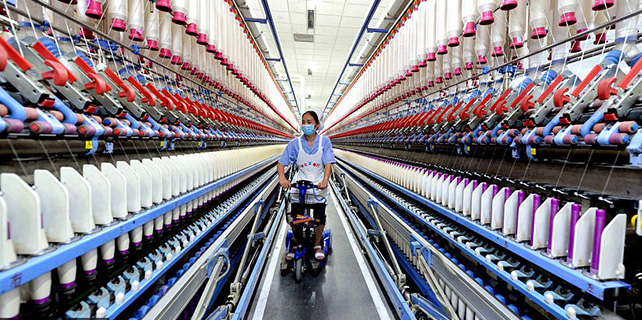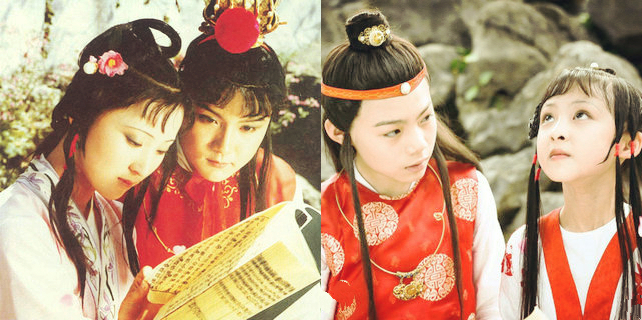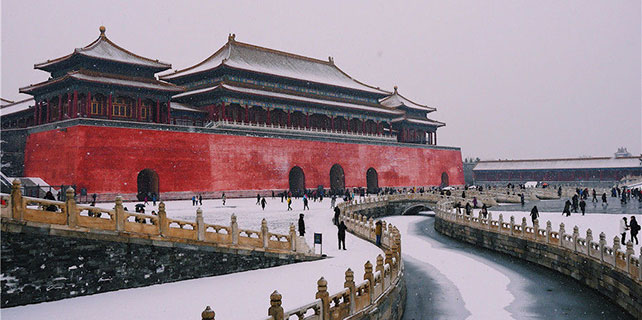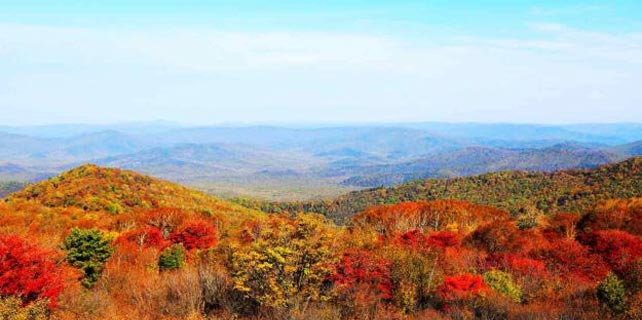A passion for tree sap turns into profit
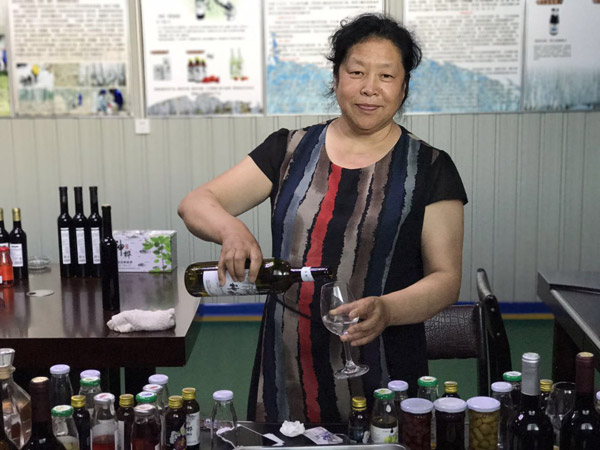 |
|
Xu Jing pours white birch sap into a glass. [Photo by ZHOU HUIYING/CHINA DAILY] |
In the Lesser Hinggan Mountains, innumerable white birch trees, intermingled with Korean pine and sawtooth oak, create a scene that reminds Xu Jing, 64, of a great green ocean.
She still remembers how birches were described in an essay she learned long ago in primary school.
Based on her deep sentimental attachment to the trees, Xu founded Tiandiyuan Biotechnology in Yichun, Heilongjiang province, in 2014. Its main focus is harvesting white birch sap.
"As a resident of Yichun, a city in the forest, I am intimately familiar with various trees," Xu said. "In Chinese culture, the white birch symbolizes strength, confidence and elegance. It is one of the godsends of nature. All parts of the tree are valuable and several are used for medicinal purposes."
"Unless you're allergic to birch sap, drinking it is a great way to detoxify the body, because of the sap's high levels of antioxidants, electrolytes and vitamins," she said.
She was surprised to discover that workers in the forest often drink birch sap directly rather than carrying water.
"It was in 1976 and I had just started my job as an official in the city's light industry bureau after graduation from the college," said Xu. "I liked climbing different mountains around the city in my spare time. Once in the spring, I saw a forest worker easily get sap after cutting the birch bark."
After tasting it, she fell in love with the magical and delicious beverage.
"The thin, watery sap is only produced during the early spring thaw after the winter freeze," Xu said. "My biggest wish was to package it as a beverage so that people could drink it anytime without seasonal restrictions."
Then, in 1985, she led a group of businesses to attend a science and technology exhibition in Beijing. She was pleasantly surprised to find information from Russia about developing white birch sap.
"White birch sap is a traditional beverage in Russia, so there must be a lot of experience to learn from," Xu recalled thinking. "So I didn't hesitate to buy it immediately, which cost me five months' salary."
The information detailed methods of white birch sap collection and processing, along with listing quality standards and nutritional value.
After asking a friend for help translating the information into Chinese, she began a series of experiments with the sap. Since then, she has been tied firmly to her white birch trees.
"In fact, there are some differences between white birches in Russia and China, so simple copying wouldn't be successful," Xu said.
As a mechanical engineering major in school, Xu became proficient in the food industry, especially in winemaking, through self-study and attending training courses around the country.
Success in retirement
After her retirement in 2005, Xu put all her energy into the cause and achieved breakthroughs in concentrating the white birch sap and in using it to make wine.
In May 2014, she set up her company in an industrial park in Taizhou, Jiangsu province, at the invitation of a friend.
"The local government promised to provide great support through funding and policy advantages," Xu said. "Furthermore, the area has great advantages in marketing, logistics and packaging."
However, she was disappointed when she drilled a well on the factory site.
"We failed to get pure water even after drilling hundreds of meters down," she said. "Pure groundwater is crucial in producing both regular beverages and wine. It can't be replaced by tap water."
Eventually, Xu gave up on the plan.
Meanwhile, the government of her hometown, Yichun, invited her to set up a business there.
"Residents had been working on forestry protection and the development of diverse new environmentally friendly industries since we abandoned the logging industry in 2013," Xu said. "I also wanted to do something for my hometown."
"Most importantly, the best white birches grow in Yichun, and can provide high-quality raw material," Xu said.
In October 2014, she registered Tiandiyuan Biotechnology and built a 4,500-square-meter factory in the Cuiluan Eco-Industrial Park.
A year later, the factory began producing white birch sap beverages, including wine.
"The Cuiluan Forestry Bureau provided 3,000 hectares of white birches, which can produce about 500 metric tons of sap in a year," Xu said. "During the harvest period from late April to the middle of May, there will be more than 100 temporary employees working in the forest."
White birch sap collection is done by drilling a hole on a tree's trunk and guiding the sap into a container with a sort of conduit. The fluid flows along the conduit by means of surface tension.
"It will not harm the health of the tree," Xu said. "After collection, the tap hole will be plugged with a round, tightfitting dowel."
Many products
Through the efforts of a 22-member R&D team in the company, 89 forest-based products have been developed, including the white birch sap. Prized wild blueberries, raspberries and kiwifruit are harvested.
Annual output is valued at around 15 million yuan ($2.3 million), Xu said, but the company was able to generate only about 3 million yuan of revenue in 2016 because the sap-based products are not well-known in the marketplace.
Nothing goes to waste, however. Surplus sap and wine products are stored for later sale. In fact, the wine will be worth more after it ages, Xu said.
"The birch sap has not been widely recognized in the country, and some people in the south don't even know what a white birch is," Xu said. "Plus, we aimed to produce high-end products, and so there was no competitive price advantage over low-end products."
Conditions improved in late 2016, and now the company is actively developing markets in Beijing, Shanghai and Zhejiang, where some high-end commercial sports clubs have shown great interest in the products.
"Whatever happens, I will not lower the quality of my products. The company is like my child. I hope I can make it grow healthily and take it to the world stage in the future."







